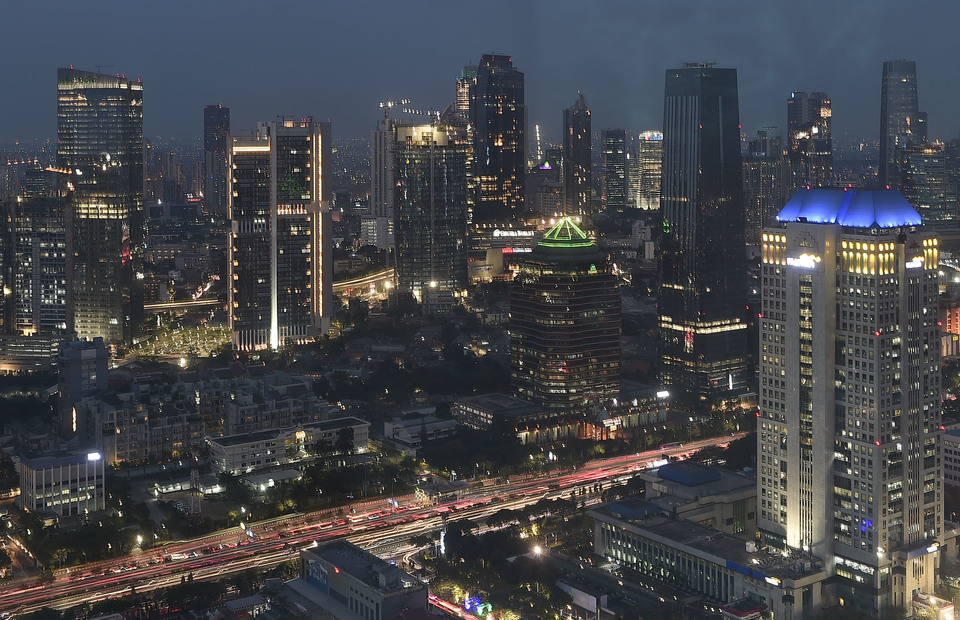Indonesia’s economy expanded by 5.02 percent in real terms last year, missing the government’s growth target and posting its slowest growth in four years as exports contracted while investment and manufacturing stalled, the Central Statistics Agency said on Wednesday.
Jakarta. Indonesia’s economy expanded by 5.02 percent in real terms last year, missing the government’s growth target and posting its slowest growth in four years as exports contracted while investment and manufacturing stalled, the Central Statistics Agency said on Wednesday.
Indonesia’s gross domestic product in the fourth quarter grew 4.97 percent from the same period last year, slower than the 5.02 percent in the previous quarter. This was the first sub-5 percent growth in more than 12 quarters, the BPS data showed.
The weak growth has put more pressure on President Joko “Jokowi” Widodo’s administration to deliver on its reform promises to boost investment.
“Last quarter’s growth, which was below 5, was indeed below the expectations of the government and economists,” BPS Head Suhariyanto said.
“But I wouldn’t say it’s disappointing. Considering the global economic slowdown, it’s still quite good,” he said.
The contraction was notable in the country’s trades. Last year’s exports were 0.9 percent smaller than the year before, while imports also shrank by 7.7 percent. The trade war between the United States and China kept reducing demand and prices for Indonesia’s main export commodities.
Investment, on which the government pinned its hopes to kickstart the economy, remained lackluster. Investment growth slowed down to just 4.5 percent last year from 6.6 percent in 2018, as many withheld their investment until the end of the elections last year.
The cash-strapped government failed to provide enough stimulus to the economy, as spending grew by only 3.3 percent last year. Expenditure on smaller goods and services and subsidy spending had also hardly moved since the year before.
Household consumption, which accounted for more than 55 percent of Indonesia’s economy, had propped up the local economy last year, growing by 5.04 percent thanks to increases in spending in health and education, restaurants and hotels, as well as food and beverages.
On the supply side, most sectors failed to repeat their 2018 performance.
“Manufacturing, trade, agriculture and construction sectors slowed down. Only the service sector posted better performance than in 2018,” Suhariyanto said.
The economic growth was lower than the government’s 5.3 percent target for last year. It has set the exact same target this year.
Tycoon Teddy Rachmat, the founder of commodities conglomerate Triputra Group, said while Indonesia’s economy could still take confidence in its strong macroeconomic foundation, the country needs to make itself more competitive soon.
“We need to improve Indonesia’s competitiveness. We can do that with the omnibus law,” Teddy said, referring to the government’s plan to revise hundreds of overlapping regulations with a handful of the so-called omnibus laws.
“I hope the omnibus laws will be passed soon so Indonesia can enter a new, more positive era,” he said.
On the monetary side, the central bank would be more likely to continue its dovish policy this year to spark growth, economists said. Bank Indonesia cut its benchmark interest rate four times and also loosened its macroprudential policies last year.
“Bank Indonesia will continue with this stance in 2020, keeping a more counter-cyclical fiscal policy as external risks still loom over the Indonesian economy,” Ryan Kiryanto, an economist at Bank Negara Indonesia, said.

